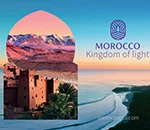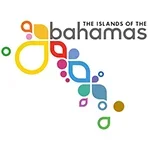 Carolyn Izzo-Feldman Carolyn Izzo-Feldman |
1996 was a pivotal time for travel. Expedia was founded as a division of Microsoft, two Stanford University students released the first version of Google and, inspired by Southwest Airlines, EasyJet and Ryanair took on the low-cost airline model.
That same year, Carolyn Izzo Integrated Communications (CIIC) opened its doors, and today, the agency celebrates 25 years of developing strategic communications campaigns for travel and hospitality clients worldwide. So, what does 25 years of working in the travel industry look like?
Fast Forward to the 2000s, when TripAdvisor revolutionized the way travelers researched and booked hotels and attractions, Facebook pioneered the concept of “sharing” and the dialogue between brands and consumers became a two-way conversation. This, plus the launch of the iPhone in 2007, gave users the ability to make travel decisions from the palm of their hands.
We’ve witnessed the transformation of travel firsthand and how the industry has changed in fundamental ways, making it more accessible and desirable than ever. Digital maps have replaced paper maps, translation apps have opened doors for travelers to go anywhere their heart desires and communicate in any language, influencers now shape travel decisions and drive consumer traffic to Instagrammable spots and online booking has begun replacing the local travel agent.
And while technology has certainly improved travel, we’ve also seen many issues throughout the years that have challenged the industry and how tourism authorities have responded. One example is the rise of overtourism that has affected destinations from Venice to Barcelona and how cities and national parks have implemented regulations to curb the negative impact of receiving too many visitors; the effects of 9/11 and how it brought forth new security travel measures that are now considered the norm.
| This article is featured in O'Dwyer's July '21 Travel & Tourism PR Magazine (view PDF version) |
Today, we’re witnessing the wake of a new travel transformation, and a revival, as the world recovers from the global COVID-19 pandemic, which brought travel as we knew it to a standstill. We’re now experiencing the rise of travel advisers and their strong influence on travel decisions. According to the ASTA, 76 percent of travel advisers are seeing an increase in customers as compared to before the pandemic.
During our tenure working with global destinations and brands, managing crises and adapting to new styles of public relations and marketing, two words come to mind to describe the travel sector: adaptability and innovation. These are the words we believe will mark the full recovery of the travel industry and reshape some of its challenges, all while paving the way for a more responsible comeback.
A responsible recovery
Green travel, which started as a small niche, has now become mainstream and key to rebuilding a sustainable industry. Companies and destinations are adopting zero-waste itineraries, helping us offset our carbon footprint and doing their part to engage the traveler experience to benefit local communities. Slow travel, a more mindful approach to discovering a destination, has also emerged.
By not returning to “business as usual” and taking into account global issues like climate change and the need to protect local diversity and cultural heritage, the travel industry will be able to create positive outcomes for the environment and communities, especially in a time when people are seeking meaningful connections to both others and natural spaces.
According to Booking.com’s predictions for future travel, 69 percent of travelers expect the travel industry to offer more sustainable options; 51 percent will avoid traveling during peak season and 48 percent will visit alternative destinations to avoid overcrowding. This will allow destinations to adopt new crowd management measures. In addition, 55 percent of travelers will look for options where their money will be able to positively impact a local community and 53 percent will consider reducing waste and/or recycling their plastic when traveling once all travel restrictions are lifted.
This new consumer mindset will also change the way we book travel, with 35 percent of travelers wanting online travel booking sites to give rewards for making sustainable choices, 29 percent looking for OTAs to use clearly identifiable verbiage to promote sustainable choices and 28 percent expecting travel companies to offer tips on how to be more environmentally conscious while traveling.
Our toll on the environment also came into focus as the world went on pause. Photos of clear waterways in Venice, the reduction of CO2 emissions and enhanced air quality were getting more views and shares than the average daily posts. During the lockdown, animals were observed in areas normally bustling with people. As a result, we’ve become more aware of the value of wildlife and will be seeking more purposeful experiences with nature. Virtual eco-tourism and safaris have already seen increased interest. This has also created more interest in how to combat illegal wildlife trading.
While sustainability is at the forefront of change, regenerative tourism, which refers to leaving a place better than you found it, is another concept that has grown in popularity for the mindful traveler. This includes generating economic opportunity for economies dependent on tourism with conscious investments, supporting a destination’s recovery efforts by giving back directly to local communities and incorporating local, immersive activities as part of the guest experience, such as beach-clean ups, supporting local artisans and reforestation projects.
Although there’s still a long road ahead, global efforts have already surfaced to drive the short- and long-term recovery of tourism, like the World Tourism Organization highlighting various roles of public-private committees and task forces in crisis response and recovery.
These consolidated efforts seek a responsible recovery for industry while highlighting social impact, climate and environmental action, protecting cultural and natural heritage, promoting conscious travel and immersive experiences, creating jobs globally that directly benefit and empower local communities and eliminating illegal wildlife trade.
So, what will the next 25 years in travel bring? Ultimately, only history will tell, but the hope is that with continued improvements, awareness and efforts towards social responsibility, the next quarter century will prove the best is yet to come.
***
Carolyn Izzo-Feldman is Founder and CEO of CIIC PR.


 Weber Shandwick is providing PR and marketing communications services to the Moroccan National Tourist Office in New York.
Weber Shandwick is providing PR and marketing communications services to the Moroccan National Tourist Office in New York. Finn Partners has filed its six-month contract with the Bahamas Ministry of Tourism, Investments & Aviation, which is worth $240K.
Finn Partners has filed its six-month contract with the Bahamas Ministry of Tourism, Investments & Aviation, which is worth $240K. Weber Shandwick wrapped up its work for the Ministry of Bahamas at the end of 2023.
Weber Shandwick wrapped up its work for the Ministry of Bahamas at the end of 2023. The Aruba Tourism Authority is boosting its budget 29.4 percent to $2.2M at Zeno Group, according to its 2024 contract, effective Jan. 1.
The Aruba Tourism Authority is boosting its budget 29.4 percent to $2.2M at Zeno Group, according to its 2024 contract, effective Jan. 1. As inflation continues to impact spending, consumers are revisiting their list of what they’re willing to spend more of their money on. Luckily for those in the travel industry, experiences seem to be trending up on the “splurge” list.
As inflation continues to impact spending, consumers are revisiting their list of what they’re willing to spend more of their money on. Luckily for those in the travel industry, experiences seem to be trending up on the “splurge” list. 


 Have a comment? Send it to
Have a comment? Send it to 
No comments have been submitted for this story yet.